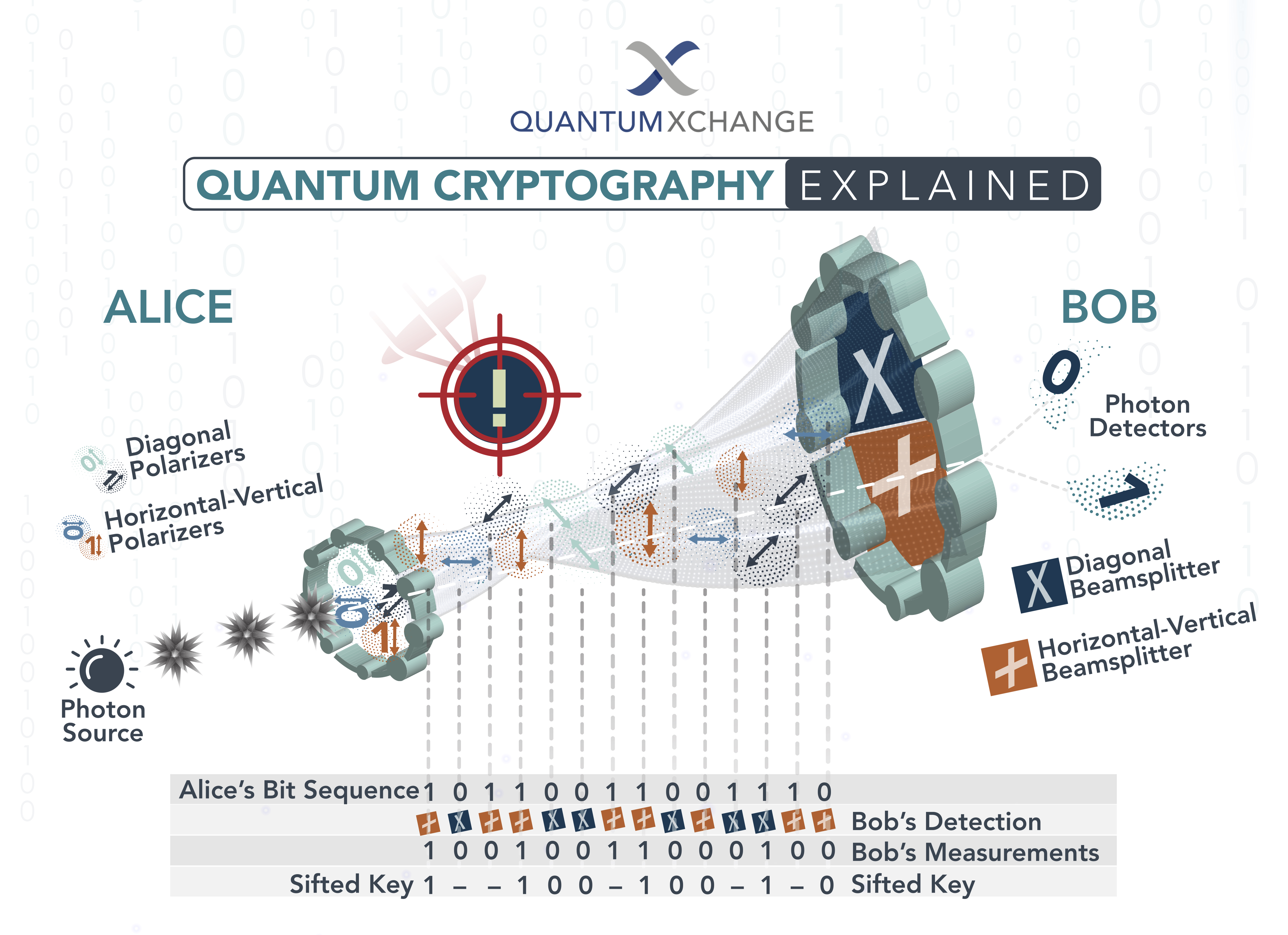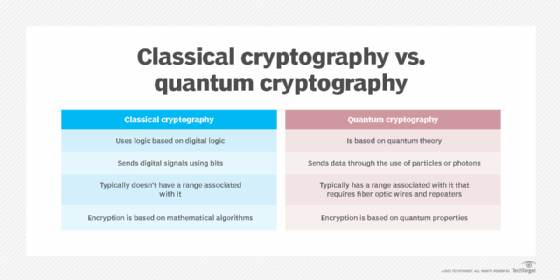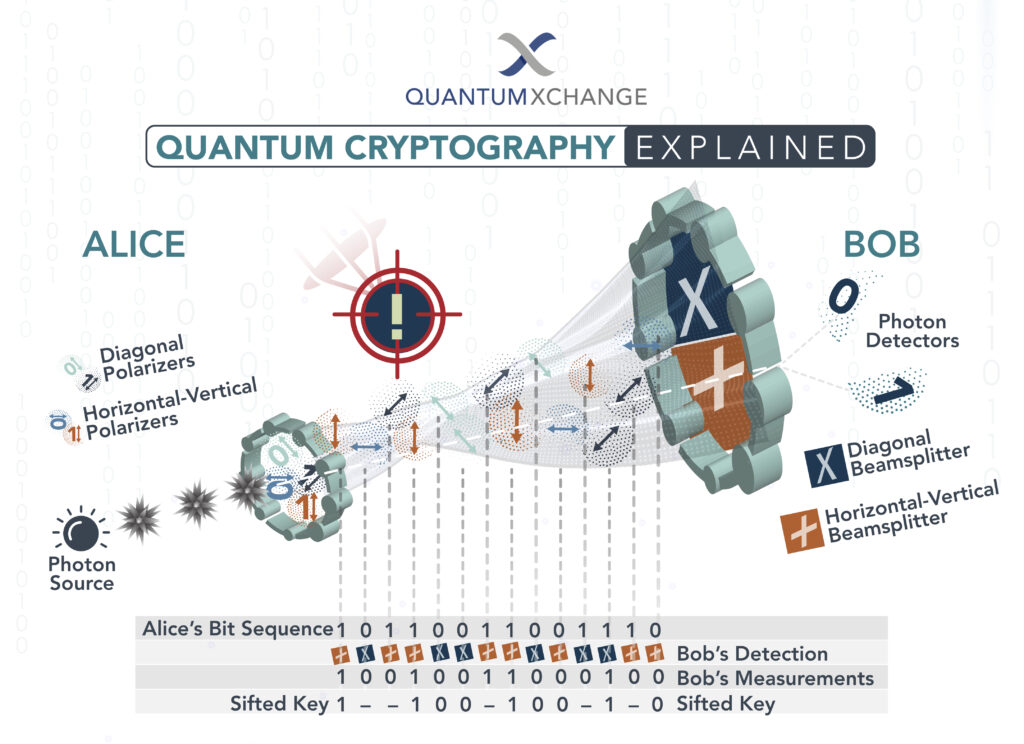Quantum cryptography has been a hot topic of discussion in the field of computer science and cryptography for several years. It is a fascinating concept that uses the principles of quantum mechanics to secure communication channels. Despite its potential, many people still wonder whether quantum cryptography is being used today.
To understand the current state of quantum cryptography, it is essential to know what it is and how it works. Unlike traditional cryptography, which relies on complex mathematical algorithms to encrypt and decrypt messages, quantum cryptography uses the laws of physics to protect data. It involves encoding information into quantum bits (qubits) and transmitting them through a secure channel. The receiver of the message can then use quantum mechanics to decode the information, ensuring that it remains secure and tamper-proof.

What is Quantum Cryptography?
Quantum cryptography is a form of cryptography that uses the principles of quantum mechanics to provide secure communication. It employs quantum key distribution (QKD) which utilizes a quantum channel in order to distribute a shared key between two parties. This shared key is used for the encryption and decryption of a message. Quantum cryptography is considered to be the most secure form of cryptography as it is immune to many of the attacks that traditional cryptography is vulnerable to.
Is Quantum Cryptography Used Today?
Advantages of Quantum Cryptography
Quantum cryptography has many advantages over traditional cryptography. It is impossible to eavesdrop on a quantum channel without leaving evidence of the interception. This makes quantum cryptography extremely secure and difficult to attack. It also allows for the distribution of the shared key to be done securely and efficiently. This is because the quantum channel is used to transmit the key, meaning it can’t be intercepted or tampered with in any way.
Another advantage of quantum cryptography is its scalability. It can be used to securely communicate between two or more parties, making it suitable for large networks. This makes it ideal for use in the modern world where data security is of paramount importance.
Disadvantages of Quantum Cryptography
Although quantum cryptography has many advantages, it does have some drawbacks. One of the main drawbacks is the cost. Quantum cryptography requires specialized hardware and software which can be expensive. This makes it impractical for many applications.
Another drawback is the complexity of the technology. Quantum cryptography requires a deep understanding of quantum mechanics which can be difficult to grasp. This can make it difficult to implement and maintain.
Finally, quantum cryptography is still a relatively new technology and is not widely used. This means that there is a lack of knowledge and experience when it comes to using it. This can make it difficult to troubleshoot any problems that may arise.
Overall, quantum cryptography is a promising technology with many advantages. However, there are still some drawbacks that need to be addressed before it can be widely adopted.
Frequently Asked Questions about Quantum Cryptography
Quantum cryptography is the science of exploiting quantum mechanical properties to perform cryptographic tasks. It has become an increasingly important tool in the field of cryptography, as it provides a secure way to communicate information.
What is Quantum Cryptography?
Quantum cryptography is a field of cryptography that utilizes the principles of quantum mechanics to provide secure communication. It uses quantum-mechanical phenomena such as entanglement, superposition, and non-locality to create secure communication channels. Quantum cryptography is based on the laws of physics and can provide a high level of security that is impossible to achieve with traditional cryptography.
Quantum cryptography makes use of quantum key distribution (QKD), which involves the transmission of a quantum signal over a secure channel. This quantum signal is used to generate a shared secret key between two parties. This key can then be used to encrypt and decrypt sensitive data. Quantum cryptography is considered to be one of the most secure forms of cryptography, as it is impossible to eavesdrop on a quantum signal without being detected.
How is Quantum Cryptography Used Today?
Quantum cryptography is used in a variety of applications today, from secure banking transactions to secure communications between government agencies. It is also used for secure data storage, as it provides a secure way to store sensitive data. Quantum cryptography is also being used in the field of quantum computing, as it provides a way to ensure the security of data stored in a quantum computer.
Quantum cryptography is also being used to protect data transmitted over the internet. Quantum key distribution (QKD) can be used to transmit data securely over the internet, as it is impossible to eavesdrop on a quantum signal without being detected. This makes it an ideal choice for secure communication, as it ensures that only the intended recipient can access the data being transmitted.
What are the Advantages of Quantum Cryptography?
Quantum cryptography offers several advantages over traditional cryptography. The most notable advantage is its high level of security, as it is impossible to eavesdrop on a quantum signal without being detected. Additionally, quantum cryptography provides an efficient and cost-effective way to secure data, as it does not require the use of complex algorithms. Finally, quantum cryptography is also more resistant to quantum computing attacks, making it an ideal choice for secure communication.
What are the Limitations of Quantum Cryptography?
Despite the numerous advantages of quantum cryptography, there are still some limitations. For example, quantum cryptography cannot be used for large-scale applications, such as encrypting entire networks. Additionally, quantum cryptography is still relatively new and not widely used, so it can be difficult to find compatible hardware and software. Finally, quantum cryptography requires specialized equipment and expertise, which can be expensive and time-consuming to obtain.
What is the Future of Quantum Cryptography?
The future of quantum cryptography is bright, as it has the potential to revolutionize the field of cryptography. Quantum cryptography is an exciting field that has the potential to revolutionize the way we communicate and store data. As quantum computing continues to advance, quantum cryptography will become an even more important tool in the field of cryptography. Additionally, quantum cryptography could be used to create a quantum internet, which would provide an unprecedented level of security and privacy.

In conclusion, while quantum cryptography may seem like a futuristic technology, it is already being used today in various applications. The technology offers a higher level of security and protection against eavesdropping and hacking compared to traditional cryptographic methods. Governments, financial institutions, and other organizations that handle sensitive information have already adopted quantum cryptography to secure their data.
As the world becomes increasingly digitized and interconnected, the need for secure communication channels will only continue to grow. With the potential to revolutionize the way we secure our information, quantum cryptography is poised to become an essential tool in the fight against cyber threats. While the technology is still in its early stages, it is clear that quantum cryptography has a bright future ahead.

